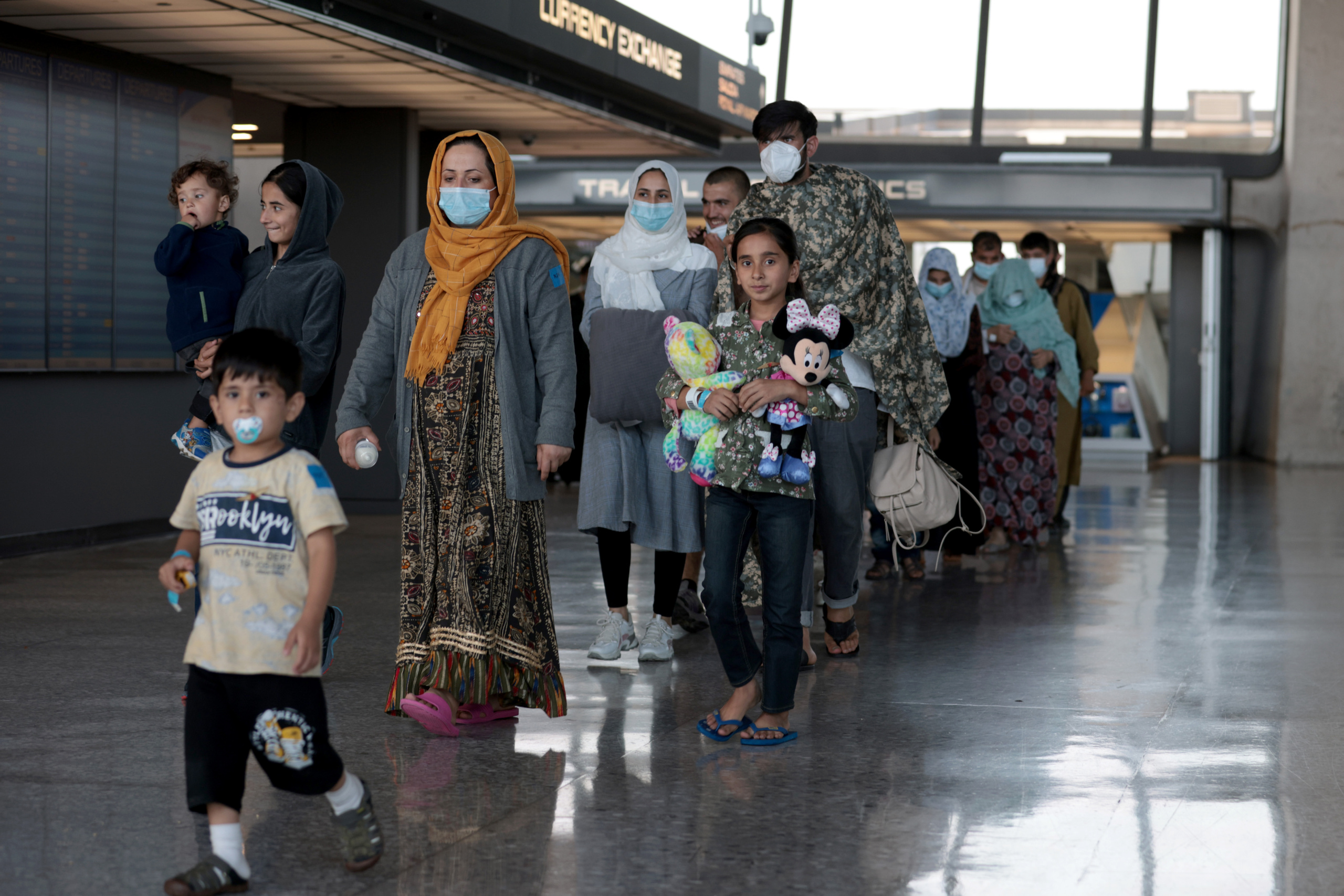By Amy Lefkof
A perfect storm: a pandemic, a shortage of low-income rental housing, and the arrival of evacuated Afghans needing a place of refuge. In the coming months, Charlotte will be one of six North Carolina cities to resettle Afghans, many of whom are coming under the umbrella of “humanitarian parole” rather than with refugee or SIV status. And many of these Afghans at the time of lease signing will be unable to show proof of income three times the rent and will have no credit history and no social security number.
Carolina Refugee Resettlement Agency (CRRA), a local affiliate of HIAS (formerly known as the Hebrew Immigrant Aid Society, established in 1881), one of nine national resettlement agencies in the United States, has over the last 25 years resettled almost 5,000 individuals here in Charlotte and supported thousands of other new immigrants. Now CRRA will have the Herculean task of quickly resettling between 20 and 25 Afghan refugee families (its counterpart, the Catholic Charities Diocese of Charlotte, will have a similar caseload) during a pandemic and shortage of low-income housing.
Through a public-private partnership, CRRA, with the help of a federal government per capita stipend for each resettled refugee, will provide case management services related to housing, employment, medical/insurance assistance, financial literacy, social integration support, and immigration legal services. Thanks to a House and Senate budget resolution passed on September 30, 2021, Afghans who entered the U.S. with humanitarian parole are authorized to receive refugee resettlement benefits.
However, on the heels of resettling these Afghan refugees, CRRA may need up to 125 additional apartments to resettle incoming refugees from other nations since on September 20, the Biden administration proposed an increase in the refugee admissions target from 62,500 in Fiscal Year 2021 to 125,000 in Fiscal Year 2022 to help address humanitarian crises around the globe. During the last year of the Trump administration, the refugee ceiling (known as the Presidential Determination number) was 15,000 compared with the annual historic average of 95,000.
To assist CRRA in its resettlement efforts, the Jewish Community Refugee Initiative (JCRI) will host its 4th Annual Welcoming the Stranger to the (virtual) Table on Sunday, November 7 from 7 to 8:30 p.m. The Zoom program will examine “Afghan Evacuation and Resettlement: Refugees, SIV, and Humanitarian Parole.” Moderated by Moira Quinn, chief operating officer and senior vice president of communications for Charlotte Center City Partners and past president of Temple Beth El, the evening program will begin with HIAS presenting an overview of the Afghan Parolee Support program and recent legislation that authorizes Afghans arriving with humanitarian parole to receive the same services as refugees.
Panelist Marsha Hirsch, executive director of CRRA, will then explain how the Charlotte Jewish community can help her agency resettle Afghan families. “Bibi,” a young Afghan woman who came to Charlotte in 2018 under the Afghan SIV program, and whose family is still trying to leave Afghanistan, will share her story. And finally Temple Beth El’s Senior Rabbi Asher Knight, whose synagogue recently delivered 40 hygiene kits to the Muslim Community Center of Charlotte for recent Afghan arrivals, will explain how welcoming refugees of all backgrounds is guided by Jewish values.
Hirsch’s goal is to mobilize members of the Charlotte Jewish community and greater Charlotte community to do the following:
- Provide temporary housing (“temp hosting”). For more information on hosting, please contact Madeline Nichols, volunteer and donations coordinator, at madeline.nichols@carolinarefugee.org or at (704) 535-8803.
- Serve as a co-signer/guarantor to enable CRRA to approach a wider range of apartment complexes that may have available apartments to lease. For more information on serving as a guarantor, contact Rebecca Kurtz, program coordinator, at Rebecca.kurtz@carolinarefugee.org or at (704) 535-8803.
- Identify corporate owners or property management companies that will be willing to work with CRRA for immediate move-ins for a sustained relationship. To provide this information, please contact Marsha Hirsch at marsha.hirsch@carolinarefugee.org or at (704) 535-8803.
- Thanks to a generous dollar-for-dollar $15,000 match (set up by Deidre and Clay Grubbs, Gary and Stephanie Starr, and an anonymous donor), JCRI is hoping to raise $30,000 for CRRA’s Afghan Emergency Fund, which may serve as a sort of backstop for those stepping up to be apartment guarantors.
- JCRI’s 4th Annual Welcoming the Stranger to the Table refugee program, although free, requires registration to obtain the Zoom link. Please see half-page event ad on page 43 in the Charlotte Jewish News for details on registration/making a donation if you wish to support local refugee resettlement. To register, contact the LJCC Customer Service Desk either in person or by calling (704) 366-5007.
Photo caption/credit: A family evacuated from Afghanistan is led through the arrival terminal at Dulles International Airport in the Washington, D.C., area to board a bus that will take them to a refugee processing center, Aug. 25, 2021. (Anna Moneymaker/Getty Images)


